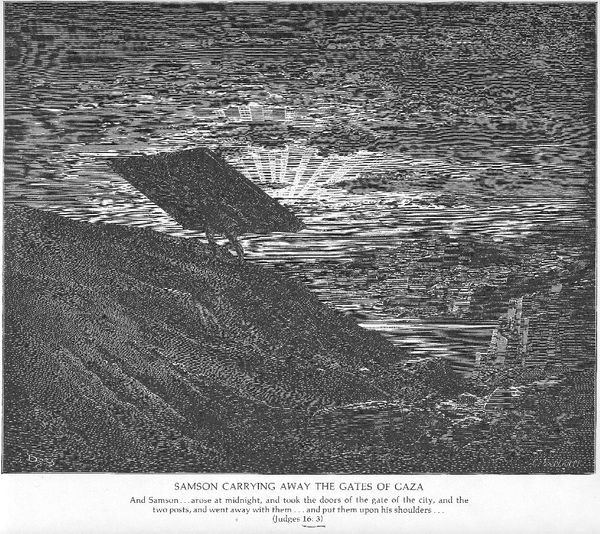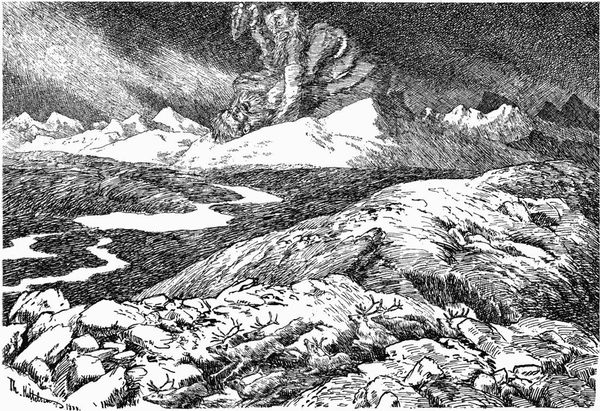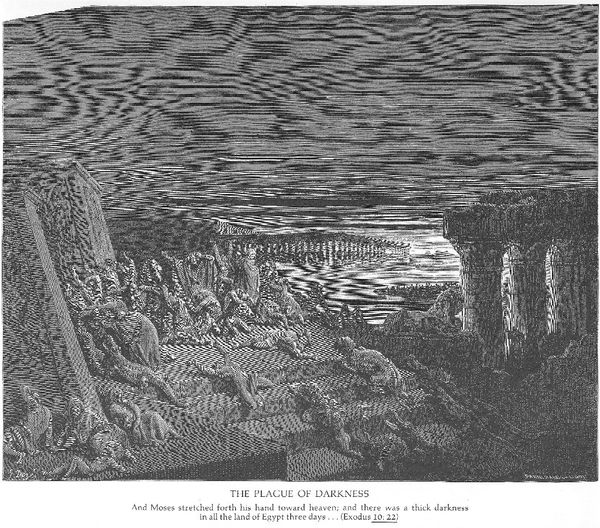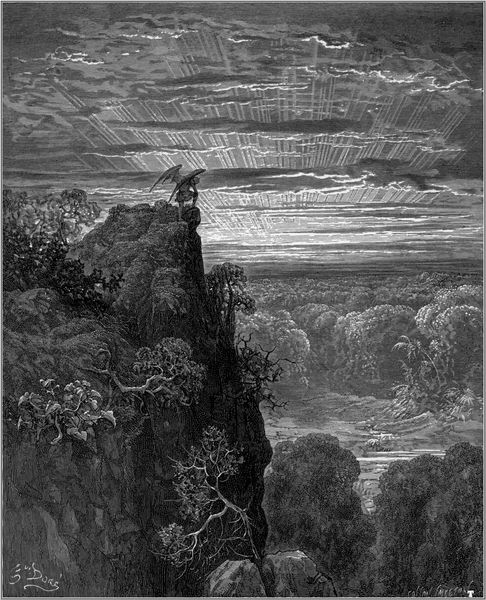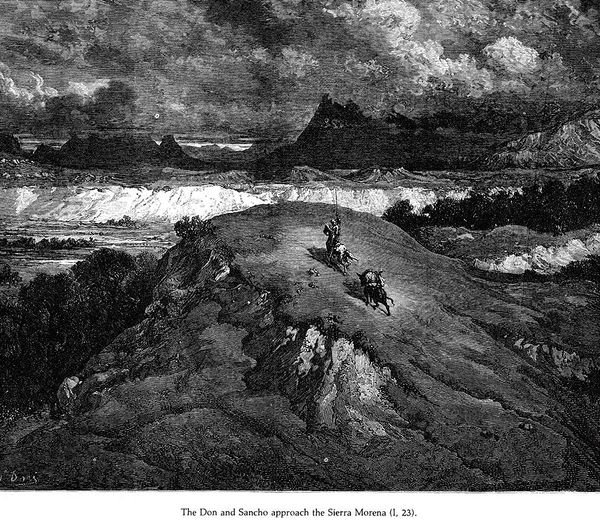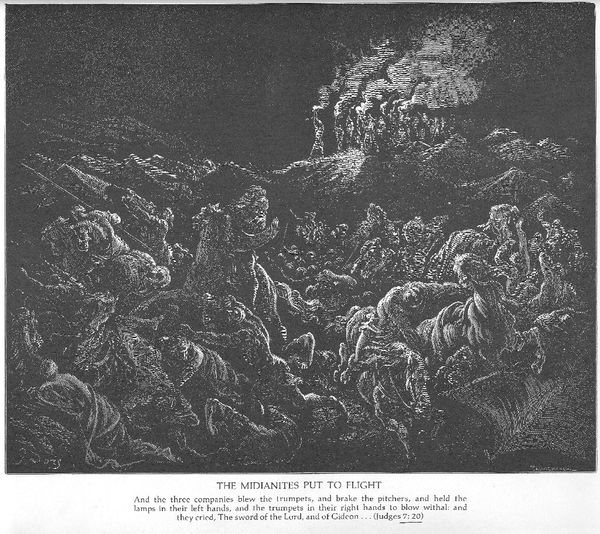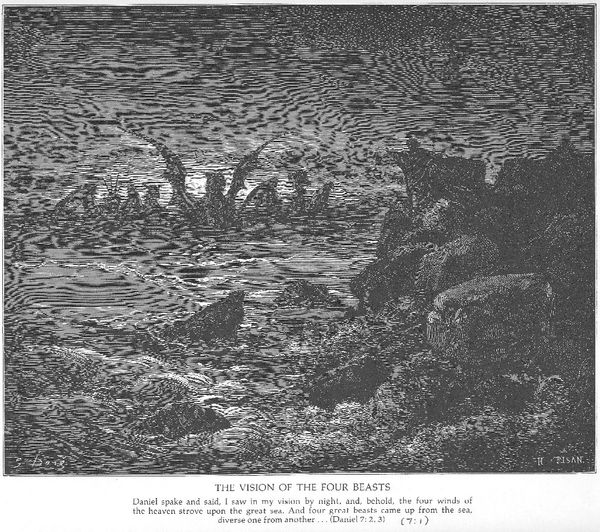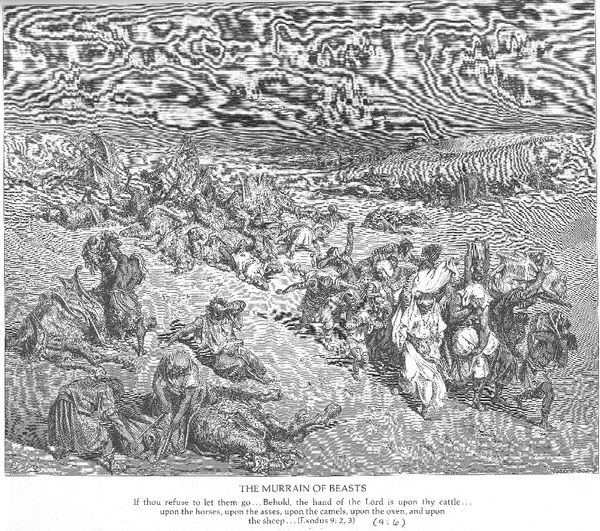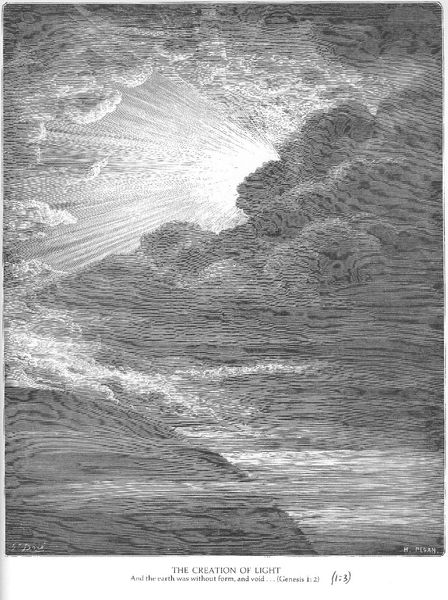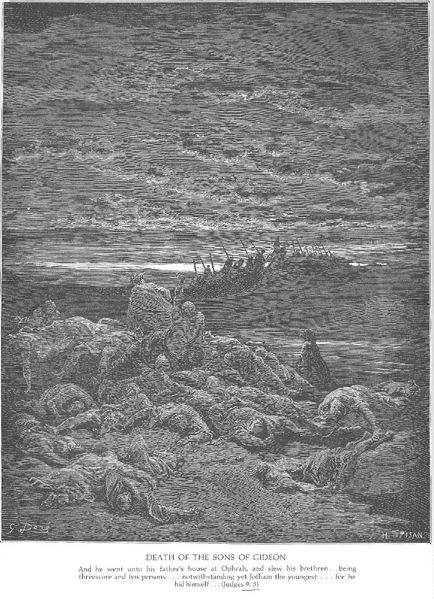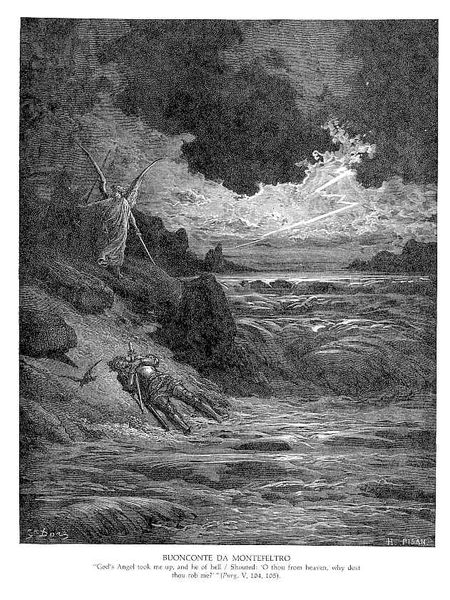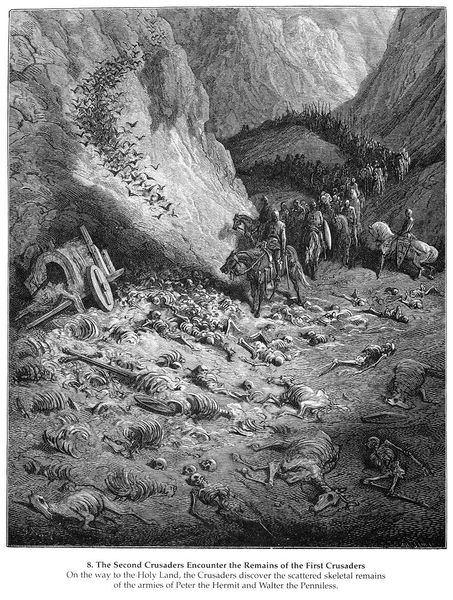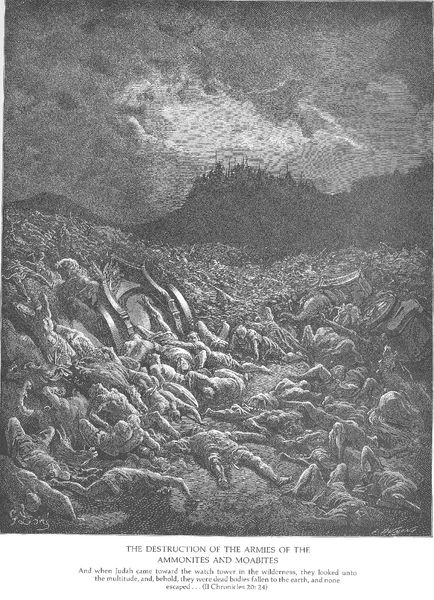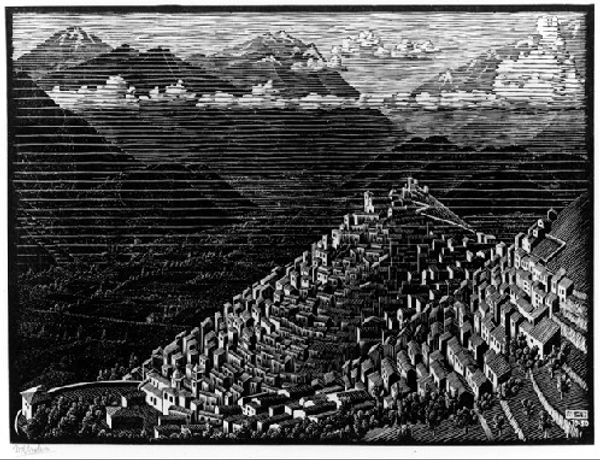
drawing, ink
#
drawing
#
line-art
#
narrative-art
#
the-ancients
#
landscape
#
text
#
ocean
#
ink
#
highly detailed
#
soldier
#
intricate
#
christianity
#
line
#
history-painting
#
sea
Copyright: Public domain
Curator: What a tumultuous scene! This is "The Egyptians Drown in the Sea," a drawing by Gustave Doré. Editor: It certainly evokes chaos. The sheer density of ink, those frenzied lines – it creates an overwhelming sense of panic. Is this another iteration of Biblical subject matter that uses scale to depict this historic drowning of an army? Curator: Absolutely. Doré was well-known for his illustrations of biblical scenes, and he masterfully employs line work to convey the drama and emotion of this event. The material itself, the ink on paper, allowed for mass reproduction, influencing how this story visually resonated through society. Think about the labor involved in producing countless prints for widespread distribution. Editor: True, these images permeated Victorian culture, didn't they? Religious narratives became readily accessible via printed media. I'm drawn to how Doré stages the event; it’s less about individual figures and more about the collective, anonymous mass suffering. How the art world turns tragedies of this magnitude into historical events open to viewership from mass markets and audiences in galleries—what do you think? Curator: And that's where the tension lies, doesn't it? High art often relies on this very consumption of mass tragedies—Doré's medium makes the sublime almost industrial. It makes one wonder where our contemporary art world and galleries have taken note. Editor: It’s a powerful and somewhat unsettling combination. One might critique how institutions legitimize violence as part of a broader historical context. Curator: Agreed. It demands a deeper exploration of how visual narratives, multiplied and circulated, shape our understanding and, potentially, acceptance of such events. Editor: Ultimately, Doré gives us something raw and affecting here. It serves as a visual anchor to these grand, historical narratives, and urges a careful examination of imagery's role in shaping perspectives on tragedy.
Comments
No comments
Be the first to comment and join the conversation on the ultimate creative platform.
